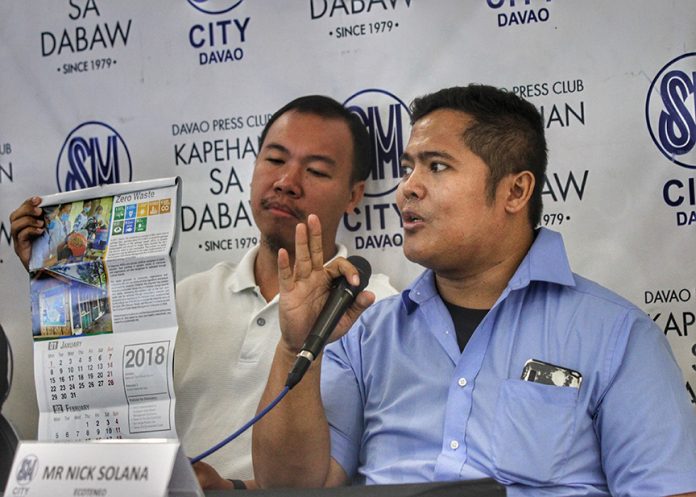
The environmental advocacy arm of Ateneo de Davao University called on Dabawenyo consumers to refuse single-use plastic as part of the zero waste mandate of the Ecological Solid Waste Management Law.
“Single-use plastics,” or disposable plastics, are used only once before they are thrown away or recycled. These items are things like plastic bags, straws, coffee stirrers, soda and water bottles and most food packaging.
Nick Solana of Ecoteneo and Sustainable Davao Movement (SDM) said that refusing single-use plastic every day will ultimately add up and significantly reduce plastic waste.
Solana said that one plastic bag refused by one person every day will matter a lot.
“It’s not just the decrease of the actual material consumption that makes sense but the perspective and attitude of having to help shape consumer demands and the businesses that serve them,” he said.
“Even malls now have a No-Plastic Day and generally have options for reusable bags,” he added.
According to Solana, the Philippines celebrates January of every year as Zero Waste Month declared by Proclamation No. 706 signed by then President Benigno Aquino III on May 5, 2014.
He said that waste segregation at source, recycling and composting, the prohibition on non-environmentally acceptable packaging and products, the adoption of a coding system for packaging materials and products to facilitate their reuse and recycling, extended producer responsibility, clean production, and the promotion of sustainable consumption patterns and lifestyles are essential Zero Waste programs that could beat the “Basura Monster” that is dirtying and tormenting the nation as garbage generation reaches over 40,000 tons per day.
To bring the Zero Waste goal to fruition, “we need to interact not only among ourselves as consumers but also with national and local governments and with industries and distribution chains,” Solana said.
Solana believed that the proper implementation of the Republic Act RA 9003 or Ecological Solid Waste Management Act of 2000 will help make the vision a possibility.
The RA 9003 is an “act providing for an ecological solid waste management program, creating the necessary institutional mechanisms and incentives, declaring certain acts prohibited and providing penalties, [and] appropriating funds.”
He said that proper implementation of existing laws will not only help the environment but it will also lessen the cost for our waste reduction.
“We can and we will make a difference, through each one plastic bottle or bag or straw refused. What it takes is to realize that Zero Waste is not about producing zero trash, but that Zero Waste is about not wasting anything to make use of everything as an expression,” he said.
Solana was assisted during the Kapehan sa Dabaw interview yesterday by Dan Mark Aguilos, also of Ecoteneo and SDM.






